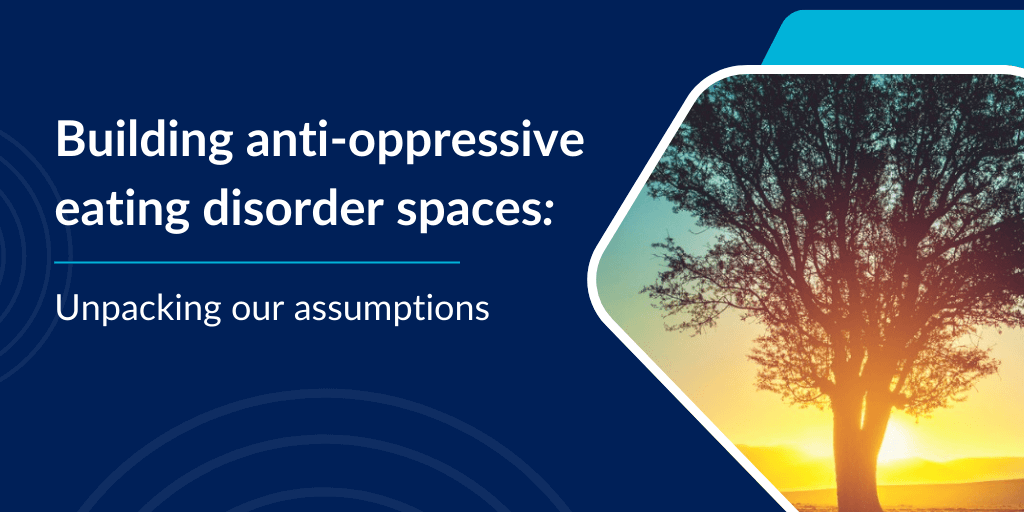Building anti-oppressive eating disorder spaces: Unpacking our assumptions

Research and experiences of predominantly white, middle-class individuals within Western culture have historically shaped eating disorder (ED) treatment. Studies reveal that most ED treatment providers are white, and research often focuses on the experiences of white women. This has led to treatment approaches with underlying racist and oppressive foundations. Despite this, racially minoritized individuals experience bulimia and binge eating disorder more often. However, healthcare professionals assess, diagnose, and refer them for treatment less frequently compared to their white counterparts. Emerging data highlight the negative experiences of BIPOC individuals in eating disorder care. This occurs alongside a growing international demand for racial justice and the inclusion of Black, Indigenous, and people of color in all eating disorder approaches.
This training aims to equip clinicians with the tools to explore and address racial and structural inequities, discrimination, and acculturative stress within the ED field. Through compassionate inquiry, participants will delve into issues of power and privilege, internalized racism, and white fragility. The goal is to foster culturally responsive and anti-oppressive care in the ED space.
Key areas of focus
- Observe and describe racial inequities in ED care: Understand and articulate the racial disparities present in the treatment of eating disorders.
- Identify power and privilege: Recognize one’s own position of power and privilege and its impact on ED treatment.
- Address stereotypes and stigmas: Identify and challenge stereotypical, stigmatizing, or othering behaviors towards people of color in the context of ED.
- Center race in ED teams: Develop strategies to prioritize racial considerations and support anti-racist practices within ED teams.
- Facilitate conversations about race: Enhance resources and fluency for engaging in a wide range of discussions about race.
- Culturally responsive approaches: Implement culturally responsive and anti-oppressive methods when addressing issues related to bodies and food.
Join us in this essential training to create a more equitable and inclusive environment for all individuals affected by EDs.
Please note: SickKids CCMH Learning Institute will record this webinar and requests that all participants review the audio/visual consent form.



